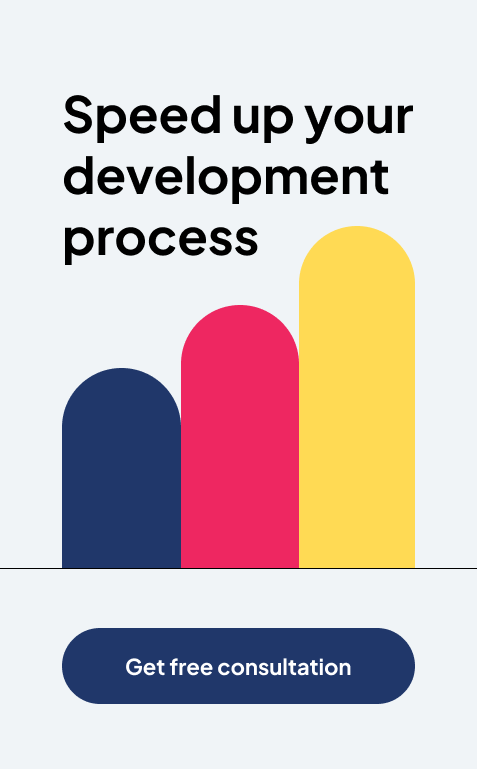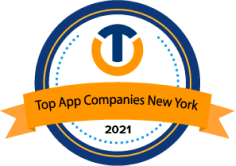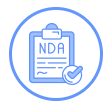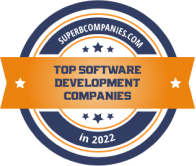How AI is Shaping the Next Generation of Software Development
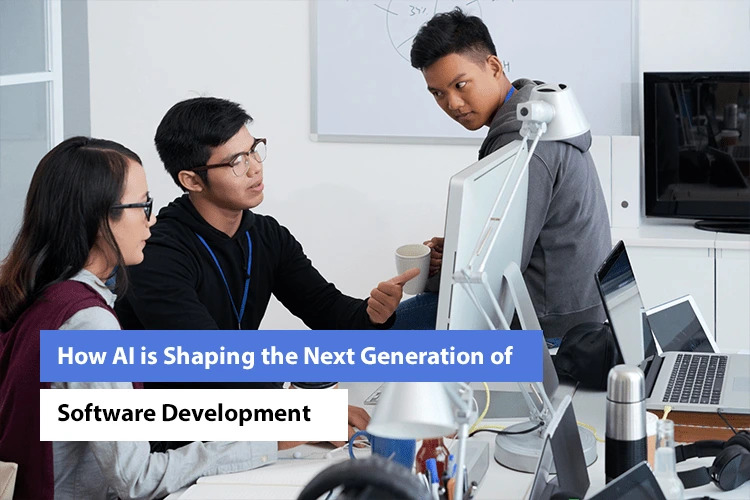
Artificial intelligence is the most discussed topic in technology. It is frequently the subject of office conversations on Slack. International headline news also features artificial intelligence. AI technology continues to witness significant development and rapid growth. ChatGPT’s success, with over a hundred million users in two months, has flagged the manner for sustained boom and milestones in the AI era. As of early 2024, the AI subject is hastily converting. New tools like OpenAI’s Sora impress consumers with photorealistic text-to-video capabilities. Google’s Gemini Advanced poses a challenge to ChatGPT.
According to recent studies, AI is now a reality in many enterprises rather than an idea for the future. According to a 2023 IBM look, 42% of commercial companies polled stated they had actively carried out AI in their operations, whilst another 40% stated they’re now investigating or checking out the era.
The increasing use of AI is converting a number of industries, together with software program development, in which it’s far improving productivity, simplifying processes, and developing new possibilities for innovative problem-fixing.
Let’s figure out how AI can shape next-gen software development, but first learn about basic AI in software development.
Knowing the Fundamentals of Artificial Intelligence in Software Development
It’s crucial to define artificial intelligence (AI) in terms of software program improvement earlier than stepping into the info. The ability of robots to carry out sports that could usually require human intelligence is called artificial intelligence (AI). It involves creating algorithms that allow computers to analyze and learn from data. These algorithms help computers identify trends. Computers use this information to make judgments or forecasts. AI is used in software development to improve the process overall. It automates repetitive techniques and aids in choice-making
Role Of Artificial Intelligence
AI is essential in software development. It helps data analysis, ensures quality warranty, and predicts trends. It transforms the development process by making it faster, more efficient, and less error-prone. AI uses algorithms and models to analyze data. Examples of these algorithms and models include machine learning, natural language processing, and computer vision. They provide intelligent solutions based on the analyzed data. AI-driven tools, such as automated coding tools, assist developers in their tasks. Intelligent debugging systems help developers focus on designing innovative solutions.
AI-powered tools are improving productivity. AI-powered technologies are enhancing code quality. Both are contributing to the overall development process. One significant area where AI is making its mark is in Agile development. AI can automate test creation and execution in Agile development. It can identify potential bugs in Agile development. AI analyzes user feedback to improve software in Agile development.
As we acknowledge the role of AI in the upper short point. Let’s grab a seat and take the tour of shaping AI’s next-generation software development.
AI-Driven Automation in Software Development: Transforming Workflow

We’ve skilled the tremendous effect of AI-driven automation. This has had a significant effect on our software development process. By incorporating tools like GitHub Copilot, we have streamlined our workflows. Amazon CodeGuru and DeepCode have helped us enhance code quality. These tools have also improved our efficiency. Here’s a closer take look at how those equipment are revolutionizing our improvement practices.
GitHub Copilot: AI-Powered Coding Assistance
It has turned out to be an amazing AI supporter for our developers. It helps with suggesting code snippets. It also generates entire code constructs, allowing our team to focus on higher-level tasks.
- Auto-completion and repetitive code detection: GitHub Copilot helps developers by completing code segments. This feature saves valuable time by flagging repetitive patterns.
- Code-from-comment generation: Copilot makes code generation faster with its ability to convert comments into code. This results in more efficient code generation.
- Error handling: The AI can generate code with built-in error-handling abilities. This helps reduce bugs and streamlines development.
- Accelerates boilerplate coding: Copilot automates repetitive and boilerplate code tasks. This allows developers to work faster. Copilot automates repetitive and boilerplate code tasks. As a result, developers can work with fewer keystrokes.
Enhancing Code Review with AI Tools
In the software development world, code reviews are essential to maintaining quality and security. We have integrated AI-powered tools. For instance, Amazon CodeGuru and DeepCode now assist with automated code analysis. These tools help with security checks as well.
Amazon CodeGuru: AI-Enhanced Code Review
Amazon CodeGuru uses machine learning to analyze code. It provides intelligent recommendations, ensuring higher quality and performance.
- Smart recommendations: CodeGuru suggests ways to improve code quality and fix inefficiencies.
- Performance insights: The application identifies the most resource-intensive parts. Developers can then optimize the code for better performance based on this identification.
- Automated code reviews: We can embed CodeGuru into our workflow. This allows us to conduct continuous code reviews during the development process.
- Real-time performance monitoring: Once an app is in production, CodeGuru monitors it. CodeGuru continues to offer insights for ongoing improvement and cost reduction.
DeepCode: Bug Detection and Vulnerability Scanning
DeepCode is another AI tool we use to maintain secure, high-quality code. Its machine-learning algorithms identify potential issues. They help make code reviews faster and more effective.
- Bug and vulnerability detection: DeepCode automatically scans for bugs within code. DeepCode also scans for security vulnerabilities within code.
- Suggested fixes: It provides actionable solutions for detected issues. This helps developers maintain code quality.
- Efficient error diagnosis: DeepCode identifies issues quickly. Suggested fixes enable faster debugging.
The Impact of AI-Assisted Development
By adopting tools like GitHub Copilot, we have optimized our development process. Amazon CodeGuru and DeepCode are among the tools we have adopted. Our development process has been significantly optimized as a result. These AI-assisted tools improve productivity. They also enhance code security and quality. This enables us to deliver better products to our clients.
AI in Software Development Testing: Enhancing Efficiency and Quality

Artificial intelligence is reworking many factors of software program improvement. One of its most impactful applications is within the trying-out technique. By using AI-powered tools, developers can streamline testing. This helps improve accuracy and reduces the time required to identify and resolve issues. Tools like Applitools, Testim, and Functionize are at the forefront of this change. They bring advanced features that allow developers to deliver high-quality software.
How AI Enhances the Testing Process
Through AI, developers can automate repetitive testing tasks. They can generate predictive analysis and quickly identify defects with AI. These AI-driven tools rely on past data to predict potential issues. This enables developers to tackle problems proactively. A more refined and robust final product is the result.
Key Advantages of AI in Testing
- Accelerated Test Creation and Execution: AI generates tests automatically. This reduces the time required for creating and executing test cases significantly.
- Improved Defect Analysis: By analyzing past test data, AI identifies patterns in software errors. This makes it easier for developers to understand and fix root causes.
- Predictive Analysis for Better Test Flows: AI models can be trained on historical data. These models can forecast potential problem areas. This enables developers to optimize testing efforts in critical areas.
Notable AI Testing Tools
These AI-powered tools are commonly used to enhance the testing process. They offer specific, advanced capabilities.
- Applitools: A visual checking-out platform that uses AI to come across visible inconsistencies and regressions. It helps maintain the look and feel of applications across devices.
- Testim: An AI-based tool that focuses on fast and efficient test creation. It executes and maintains tests with self-healing capabilities. This means that the tests can adapt to code changes.
- Functionize: A machine-learning-driven testing platform automates test creation. It updates tests as applications evolve, making it easier to maintain effective tests over time.
These tools enable developers to deliver higher-quality software. They ensure a thorough, efficient, and predictive testing process. Using AI in testing enables better results. This results in faster and more reliable testing. Teams can then focus more on innovation and feature development.
The Role of AI in Optimizing DevOps Workflows

With improvements in AI, IT operations have been automated, additionally known as Artificial Intelligence for IT Operations (AIOps). This automation of IT operations has become a game-changer for software development. AIOps uses AI to streamline operational workflows. This enables teams to: Improve the speed and efficiency of processes. Reduce manual effort. Minimize errors in complex DevOps environments.
Several specialized AI applications are now available, each addressing key areas of DevOps to maximize efficiency, from code security to resource optimization and continuous integration/deployment (CI/CD) processes. Here’s a closer look at how these tools support developers and DevOps teams:
Key Functions of AI in DevOps
- Code Security Scanning:
- Tools like GitGuardian scan codebases for sensitive information, along with API keys and credentials, to lessen safety dangers.
- Optimizing CI/CD Pipelines:
- AIOps solutions help automate tasks in CI/CD. They prioritize tests to expedite the process. AIOps solutions also identify bottlenecks to speed up deployment.
- Automating Canary Verifications:
- Developers can automate canary releases. This reduces the need for manual checks. It ensures the smooth deployment of new code in production.
- Impact Analysis:
- AI equipment can examine the effect of code adjustments, supporting teams to make data-driven selections on updates and upgrades.
- Cloud Cost Optimization:
- AI-powered solutions assess resource usage, suggesting ways to cut costs while maintaining performance.
Advanced AI Solutions for Operational Efficiency
One popular tool in AIOps is Amazon DevOps Guru. This machine learning-powered service assists developers in enhancing application performance and reliability. It analyzes operational data to detect anomalies. Allowing teams to resolve issues before they affect the user experience. With predictive alerts, DevOps Guru identifies potential issues. With insights, DevOps Guru optimizes applications for smooth and efficient running.
How AI-Powered Tools Drive Performance
- Identifying Resource Usage:
- Some tools analyze system usage patterns. They highlight overutilized resources. They suggest optimization steps.
- Predicting System Downtime:
- By examining historical data, AI tools can predict potential downtime. They alert teams in advance to prevent disruptions.
- Scaling Infrastructure:
- AI helps manage sudden spikes in user traffic. It scales resources as needed. OR AI manages sudden spikes in user traffic by scaling resources. This ensures consistent performance under high load.
- Caching and Page Optimization:
- Frequent traffic endpoints are automatically cached. Page elements that need improvement are identified for better performance.
Streamlining DevOps with AI-Powered Tools
A range of AI tools, such as CloudBees, Harness, and CircleCI, help developers. They support automating repetitive tasks and optimizing workflows. These tools make it easier to monitor applications and enhance their reliability. This frees up developers to attention on better-value activities in the DevOps lifecycle.
By leveraging AI solutions, DevOps teams can deliver software that is greater resilient. They can also make software more scalable and cost-effective. This enables teams to meet user expectations for performance and reliability.
Increasing Access to Software Development

AI has transformed software development. It has made software development accessible to not only developers but also to non-technical employees. Tools like ChatGPT can generate software scripts with simple prompts. This empowers people without programming knowledge to participate in software creation. This has covered the way for the rise of no-code and low-code development platforms. They are changing how applications are built.
No-code and low-code platforms simplify the development process. They enable users to create applications through visual interfaces. Here’s how these platforms work and their impact on the development landscape:
- No-Code/Low-Code Platforms: Examples include Amazon SageMaker and Apple CreateML.
- Intuitive Visual Interfaces: Users can create applications without writing extensive code. They can use tools like drag-and-drop components and configuration wizards for this purpose.
- Drag-and-Drop Interfaces: These allow users to visually select elements within an application. Users can arrange these elements to make the design process accessible and interactive.
- Wizards: Step-by-step guides: Walk users through the setup process. Use questions and dropdown options for simplified app configuration.
Traditional developers may not find immediate applications for these platforms. The technology, however, promotes inclusivity. It broadens the range of people who can contribute to software projects. Lowering the technical barrier to access, no-code, and low-code equipment allows for a more varied method of software program development. These tools enable team members and contributors with various backgrounds to take part actively in software development.
Conclusion
The integration of AI into software program improvement marks a pivotal shift in how packages are constructed. The use of AI in DevOps marks a pivotal shift in how programs are examined and controlled. By automating repetitive responsibilities, AI is supporting to streamline procedures. Enhancing decision-making processes with AI is enabling a focus on innovation. The industry is being reshaped to prioritize efficiency with the help of AI.
High-quality results are becoming the standard with the integration of AI technology. Tools like GitHub Copilot, Amazon CodeGuru, and DeepCode have brought significant changes to coding assistance. They have improved code review and vulnerability detection, allowing developers to work smarter and faster.
In testing, AI solutions like Applitools and Testim streamline testing workflows and improve defect detection, contributing to reliable and resilient software. Additionally, the rise of AIOps, with tools such as Amazon DevOps Guru, has automated complex operational tasks, reducing the need for constant manual monitoring. From enhancing CI/CD pipelines to managing cloud resources efficiently, AIOps optimizes each stage of the DevOps lifecycle, providing predictive insights and fostering proactive problem-solving.
With AI-powered tools continuously evolving, software development and operations are set to become even more agile, scalable, and responsive to user needs. For development teams aiming to stay competitive, leveraging these technologies will be essential to delivering high-performance applications in an increasingly dynamic digital landscape. Have a look at our portfolio!
Want more information about our services?
Similar Posts
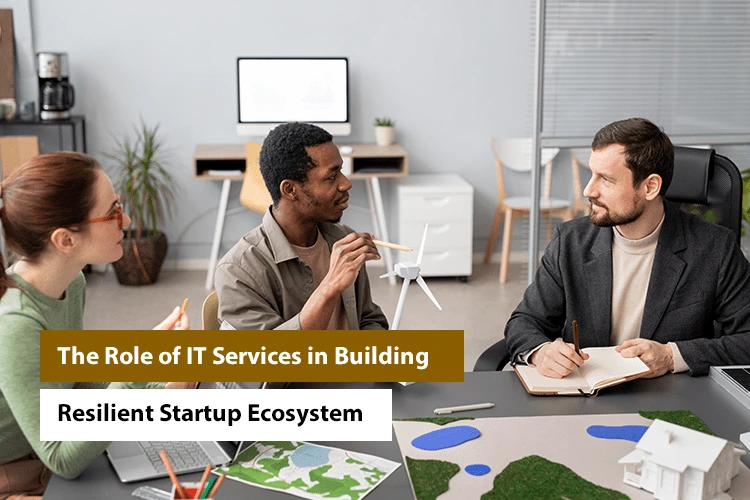
The Role of IT Services in Building Resilient Startup Ecosystems
Scaling up a startup is an exhilarating journey and an enormous challenge. Efficient IT services play an important role in scaling up the startups. Founders leading 200-person teams in rapidly growing companies face many challenges. One of the biggest struggles is scaling operations efficiently without losing agility. While scaling the startup, every process must be […]...
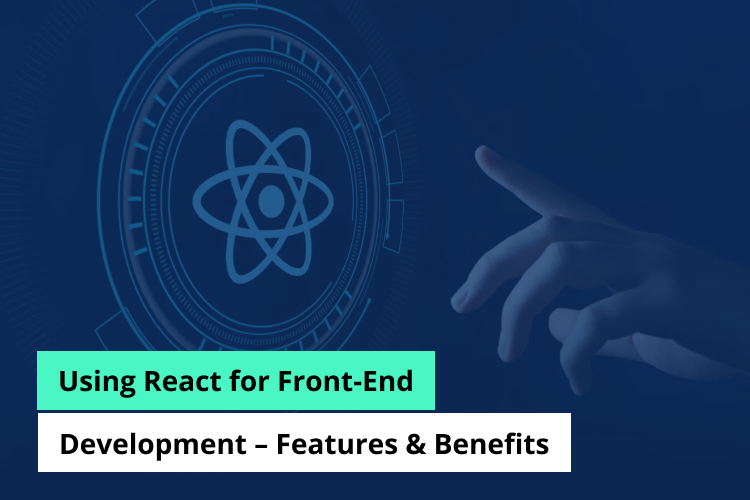
Using React for Front-End Development – Features & Benefits
In today’s fast-paced world, where technology is constantly evolving, companies need to stay up-to-date with the latest trends and tools. You don’t want to be that company using a fax machine in 2023, do you? That’s just embarrassing. When it comes to front-end development, React is the cool kid on the block. It’s the leather […]...
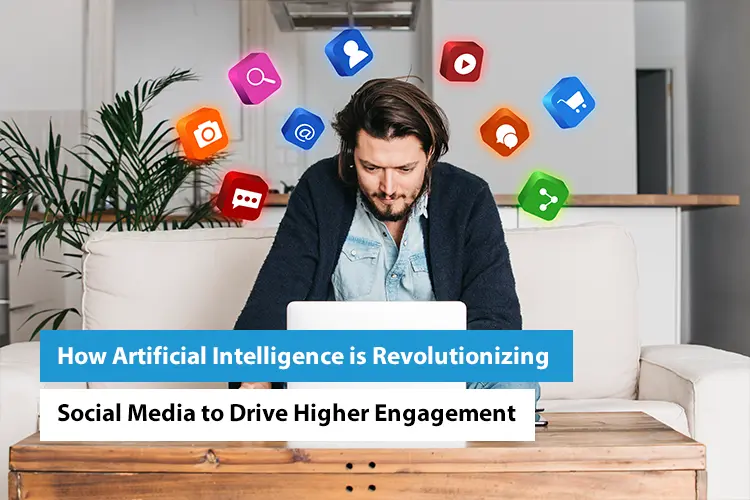
How Artificial Intelligence is Revolutionizing Social Media to Drive Higher Engagement
Have you ever wondered how social media platforms seem to know exactly what content you want to see, even before you do? Or how they manage to keep you endlessly scrolling through your feed, mesmerized by a stream of captivating posts and videos? The answer lies in the powerful integration of Artificial Intelligence (AI) into […]...


